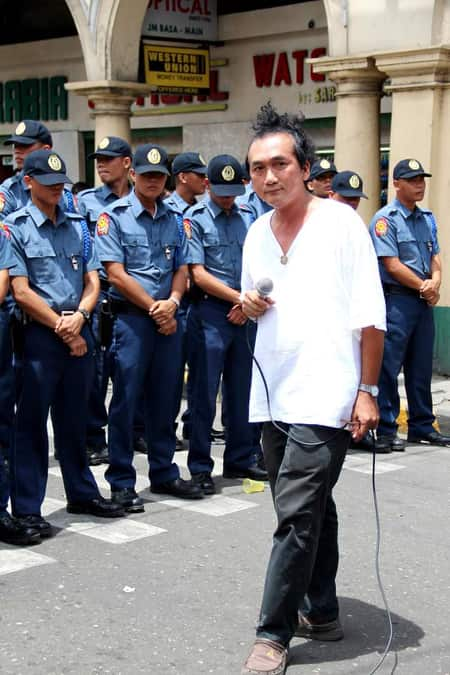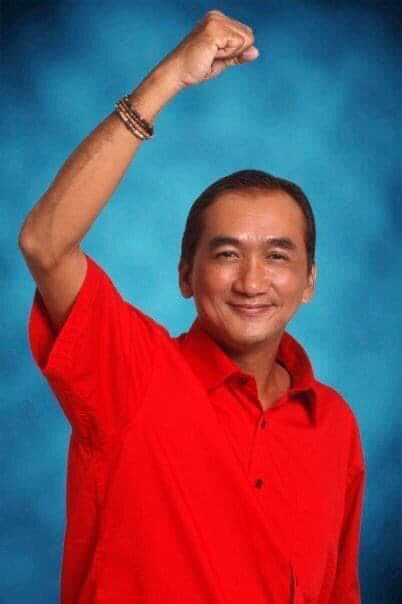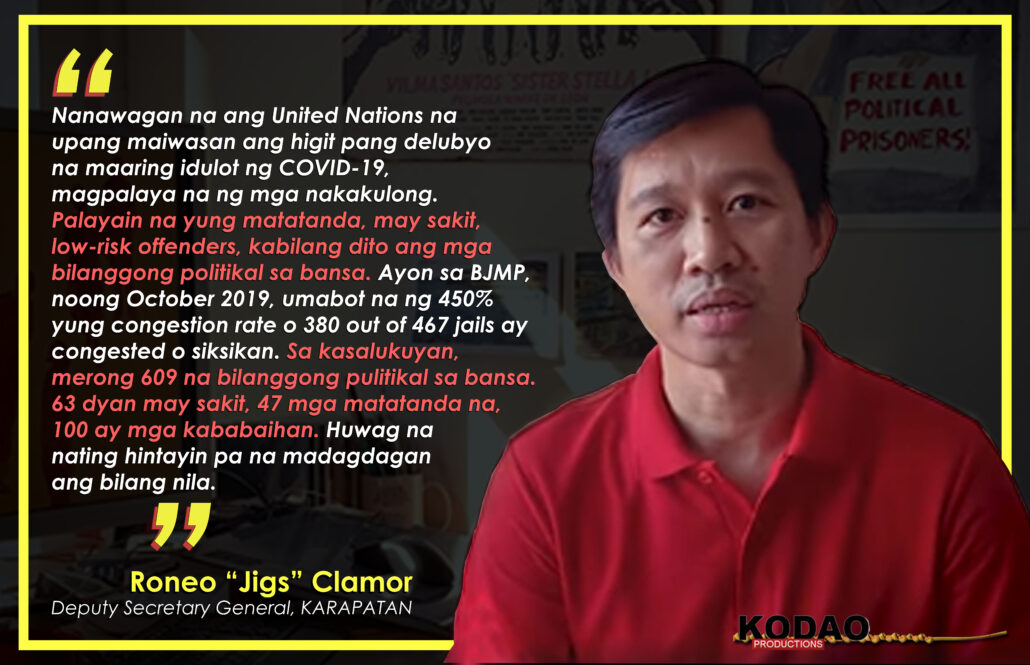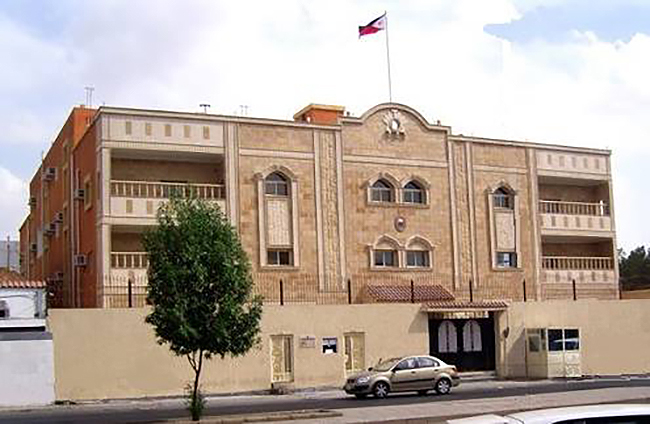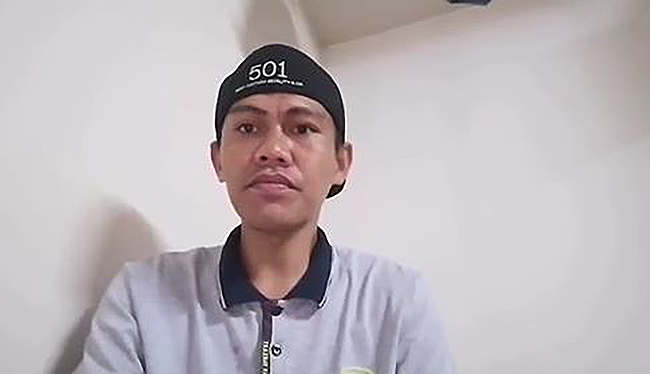Covid 19, the Neo-liberal Policies and Chinese Imperialism (Part II, Section II)
By Prof. Edberto Malvar Villegas, PhD
(This article is presented in two parts and will be given in three posts. The first part covers “Covid 19 in the Phillippines”, “The Imperialist Neo-Liberal Policies of the IMF-WB-WTO”, and the “The Neo-Liberal Policies and US Overproduction”. The second part comprises “The Emergence of Chinese Imperialism”, “China’s AIIB”, “China’s Debt Trap”, “The US-China Rivalry and Covid 19” and the “Conclusion”. While the rapid spread of Covid 19 in the Philippines is due to its poor health system because of the policies of the IMF-WB, the virus was directly caused by the easy entry of Chinese nationals into the country due to the too open accommodation of the Duterte’s administration of Chinese imperialism.)
China’s Debt Trap
The Philippines, which is an original founder of the Asian Infrastructure Investment Bank (AIIB) and is a participant in the Belt and Silk Road initiative, has borrowed from the bank the amount of $217 million for development of infrastructures in the NCR. Duterte has also borrowed from the Chinese government-owned Eximbank, which will finance 19 of his 75 projects under his vaunted Build-Build-Build (BBB) program, which includes a P4.37 billion loan for the Chico River dam and P12.2 billion for the Kaliwa dam projects. It is to be noted that out of the BBB’s 75 projects, only nine are barely starting and it is the last lap of Duterte’s term. Where are all the borrowed monies from China, with their high interest of 2% per annum, 10 times higher than Japanese loans? It may be just lying idle in the Bangko Sentral ng Pilipinas or being used elsewhere than its intended purpose.
We fear that the Philippines will just fall into another debt trap with China as it has with loans from the IMF and WB. Zambia, Djibouti, Guyana, Pakistan and Sri-Lanka are already in the deadly grip of such Chinese debt traps with Sri-Lanka having to give up its Hambantota port in its southernmost part to defray unpaid loans from Chlna. The acquisition of Hambantota was accomplished through the help of a $8 million bribe the Chinese extended to Sri-Lanka president Rajapaska to support his presidential campaign. (New York Times, April 20, 2019) Actually, China Construction Company, the parent company of Chlna Harbor which constructed the Hambantota port, using Chinese workers, was banned by the WB from participating in the biddings for the Bank’s projects for 8 years due to corrupt practices in the Philippines. (Forbes, op. cit.)
China has insidiously inserted in its loan contracts with other countries a provision which specifies that in case of a default on its loans, a country must give up its immunity of sovereign rights and forfeit property, which could include land and sea. This is found in the contract for the Philippine loan for the Kaliwa Dam in Article 8.1(Waiver of immunity). Such onerous provision has also been included in China’s loan contracts with other developing countries like Guyana, Zambia and Kyrgystan (Rappler, Made in China, 2019) Workers in Kitwi, Zambia, have protested such odious condition, rioting and battling police and attacking Chinese shops, when they found out that their government-owned timber company, ZAFFICO, will be turned over to China since their political leaders could not pay a loan to Beijing. They were afraid that they will be replaced by Chinese workers as Chinese investors are wont to do in countries where they operate. Beijing, confronted with such violent reactions to its planned acquisition of ZAFFICO, restructured the loan. (Forbes, ibid.)
China’s “debt diplomacy” is a military as well as an economic strategy in its fierce competition with the US to control vital sea and land routes. China has docked its submarines at Hambatota port in Sri-Lanka since it is located in a strategic area near the Suez Canal where thousands of ships, including 4,500 oil tankers, pass by annually. Beijing has also already installed military facilities in the Spratly Group of islands in the West Philippine Sea (South China Sea to Beijing) as its route is traversed by 50% of world trade yearly. The weak Philippine Rodrigo Duterte has accommodated, in fact acceded, to China’s takeover of the Spratly islands, even though these lie within the exclusive economic zone of the Philippines, whose claim to the area was upheld by the UN arbitral tribunal at the Hague in 2016. Duterte refuses to assert the Philippines’s sovereign rights to Spratlys, claiming China will declare war on his country if he did. What a dereliction of duty! He should resign or be booted out from power if he is such s wimp of a president that he cannot even defend the integrity of the country. China consequently warned US ships from patrolling in the vicinity of the Spratly’s Group of islands, insisting they lie within its territorial jurisdiction.
US and China’s Rivalry and Covid 19
The deadlock struggle of US and China to control global world trade has even led them of accusing each other of creating Covid 19 in the other’s respective laboratory for biological warfare. US military scientists say that Covid 19 is a man-made combination of viruses obtained from bats and pangolins which accidentally leaked out from a lab in Wuhan, China, due to faulty handling. They debunked China’s claim that the virus came from bats in a wet-market in Wuhan as a cover-up since there are no bats for sale in that market. The lab concerned is only several blocks away from the market. Chinese officials fired back that the virus came from a lab in Fort Derrick, US, and was brought to China by American soldiers during a military sports competition in Wuhan in October, 2019. (Read the arguments of both sides which are replete in the internet and decide for yourself.) Be that as it may, whether Covid 19 originated from a Chinese or American lab for biological warfare, its effect on the world has been devastating with hundreds of thousands dying from it. The deadly activities of the imperialist powers to prepare for war against each other by creating dangerous viruses in their labs should be condemned by the UN and an investigation started by this body on which country is guilty behind this world pandemic after we have passed through it.
The quarrel between American and Chinese imperialists is also adversely affecting the job security of US workers caused by the raising of tariffs by the Trump government on goods coming from China, leading to the rising of production costs in American firms and the retrenchment of workers. (In the US, it is to be noted that the top 1/10 of 1% of Americans own almost as much wealth as the bottom 90%, according to erstwhile candidate for US president, Senator Bernie Sanders, based on the findings of his research team.) We do not know the effects of the US-China trade war in Chinese factories, since Xi Jinping’s government is very secretive regarding the going-on in his society.
Conclusion
We will survive this Covid pandemic, but there is still a heavy responsibility facing all of us. US monopoly capitalism (imperialism) and its rival, China, with its equally rapacious imperialism, are causing the Filipino masses and other peoples of the world to be impoverished, while their leaders subservient to the imperialists wallow in wealth and power. Indeed, imperialism with its predatory activities and its contradictions, primarily its warlike nature using the masses as cannon fodder, is the scourge of humankind. Imperialism must be finally expunged from the face of the earth in order to uphold the well-being of the exploited classes, the wretched of societies, and to prevent the destruction of our planet caused by capitalist greed. A new generation of socially-dedicated and unselfish individuals, coming from a united front led by the enlightened working classes with their allies, both national and international, must arise to finally dismantle the dominance of those whose ,main concern is to plunder for profit no matter the costs. A new world order must be built to advance first and foremost the welfare of the majority classes and zealously guard the rights of all persons. History is calling each of us to be counted in this new generation and contribute what we can to accomplish this great task for the salvation of our species and our mother earth. #
= = = = =
The author is a retired Social Sciences Professor of the University of the Philippines-Manila and De La Salle University. He is also a novelist and an author of several books on many topics.

